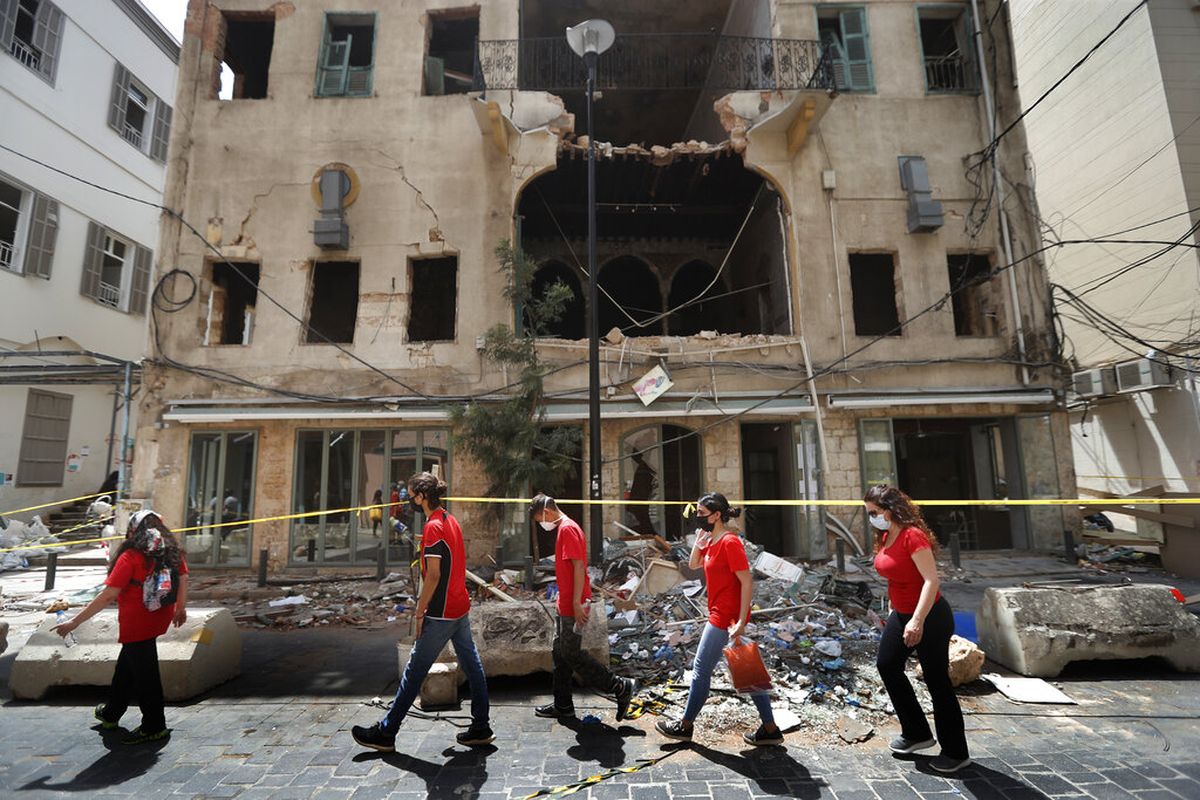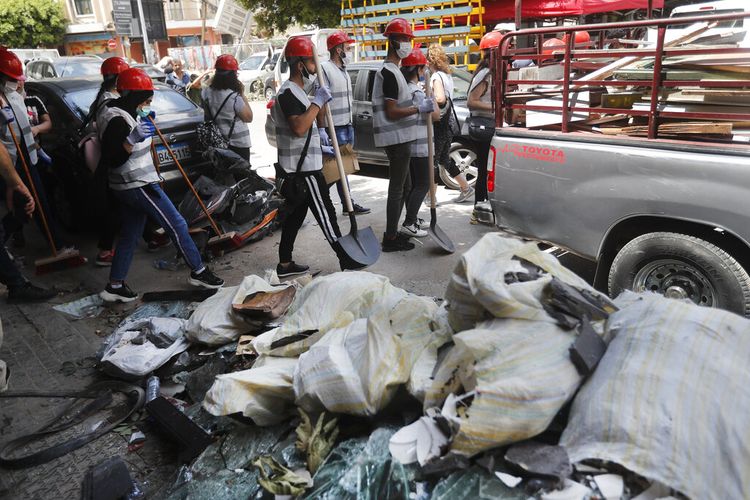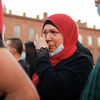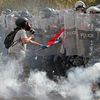Lebanese Stand in Solidarity as Govt Abandons Beirut Explosion Recovery Effort

The individual acts of solidarity have been even more striking because Lebanon was already in the middle of a worsening economic crisis that has thrown hundreds of thousands into poverty and left households and businesses with little or no excess cash.
“I am so proud of the Lebanese people,” said Kim Sacy, a 19-year-old university student.
“There is no state, there is nobody, there is nothing … we are the ones doing everything in the field.”
Kim is studying at a French university and was supposed to be on a program in Sweden this year but the coronavirus pandemic grounded her in Lebanon.
She was outside Beirut driving home when the blast took place.
She didn’t feel the explosion but when she reached her neighborhood of Achrafieh, she found it shattered. “This is where I lived my whole life,” she said.
Kim Sacy's family home was damaged, but she still wanted to help others.
“It is not important. I consider myself lucky,” she said. “It is the people who make the home.” She said some of her family members were injured in the blast but are doing fine now.
Read also: World Donors Demand Reforms Before Disbursing $300 Million in Humanitarian Aid to Lebanon
Sacy began collecting food and other items to give to those in need. Around 25 families have reached out to her to donate, some she knows, but half are strangers.
For the past week, she has been circulating around Beirut in her car to pick up donated furniture, first aid kits, bed sheets and kitchen utensils that she gives to a local non-governmental organization to distribute.
When not doing that, she has been cleaning in the streets, including cleaning a fire station.
The self-help spirit has roots in the long civil war, when central authority collapsed and Lebanese had to depend on themselves to get by.
In more recent years, waves of anti-government protests have emphasized volunteerism and civic duty — boosted by social media that made connections bypassing the state easier.
The shock of the explosion and the trauma of seeing loved ones injured or a home wrecked has exacted an emotional burden on Beirutis — especially with financial woes already weighing on people.
The Beit Insan well-being center is offering free services to help people overcome the trauma that the blast may have caused. It is also encouraging people with money to “pay it forward” and cover costs for people to get psychological help.
“We know since all the events that have been happening, that less and less people have money for mental health,” said Dr. Samar Zebian, co-founder and co-director of the center. “We are a social business.”
(Writer: Hend Kortam)
Source: https://apnews.com/f5fad194d9c904c88e0082621b3fd350
Simak breaking news dan berita pilihan kami langsung di ponselmu. Pilih saluran andalanmu akses berita Kompas.com WhatsApp Channel : https://www.whatsapp.com/channel/0029VaFPbedBPzjZrk13HO3D. Pastikan kamu sudah install aplikasi WhatsApp ya.


































